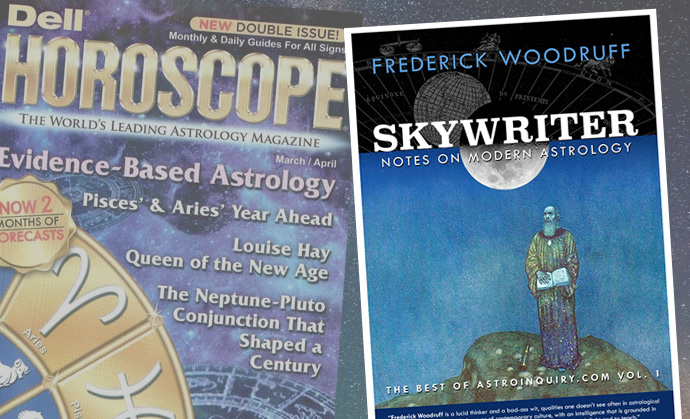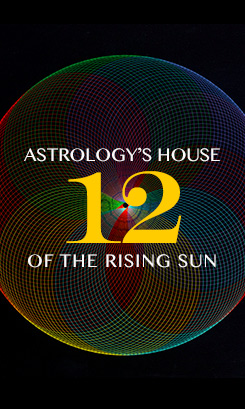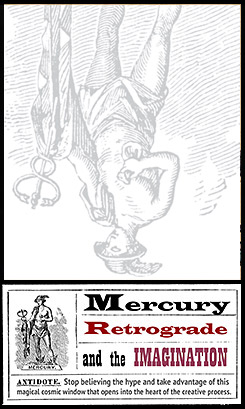Horoscope Reviews My New Book Skywriter

Astrology claimed me in the mid-70s when I was a kid. As far back as I can remember our home was stocked with Horoscope magazines. You’d find issues — current or older — in every location of the house. Consulting the stars was an impulse that might overtake you at any moment! I clearly benefited from my mom’s oracular fascination.
From Horoscope, I found my way to my teacher, Ivy Goldstein-Jacobson. And then — pow — 45-years zipped past. And here I am compiling this post. It’s uncanny and humbling to have come full circle. Meaning, the new issue of Horoscope contains reviewer Chris Lorenz‘s comprehensive look at my new book Skywriter: Notes on Modern Astrology, sections of which I’m highlighting below. What a wonderful time-cycle this has been.
It’s a testament to Horoscope‘s keen-eyed editor Ronnie Grishman that — in the age of what I call ‘hypermedia’ — the print version of the magazine continues to roll off the presses and find its way into homes across the globe. And into the hearts of the next generation of astrologers. You can subscribe to Horoscope here, either in its print or electronic version.
Skywriter: Notes on Modern Astrology by Frederick Woodruff
The growth of the Internet and social media over the last few years has had a dramatic influence over the astrological community, which collectively has expanded exponentially in recent years. Nowadays, anyone interested in astrology may feel she has no one to talk to in the local community, but readily finds a treasure trove of astrology-based websites to read online and engaging conversations within social-media groups.
Frederick Woodruff finds the Internet a frequent foil in his collection of fifteen essays, Skywriter, Notes on Modern Astrology. Other essay subjects include discussions on Pluto, Mercury retrograde, and even a few non-astrological topics of interest to those living in the Age of the Internet.
Although his essays are wide-ranging, he does come from a specific psychological, philosophical viewpoint that shapes the content of his musings and criticisms. His most frequently quoted source of authority is G. I. Gurdjieff, the early twentieth-century mystic.
Gurdjieff’s primary mission was to awaken his students’ relationship to their bodies. The body has its own wisdom, which is an extension of the earth’s body and wisdom. For those who spend so much time on their cell phones or surfing the Net, Gurdjieff’s teachings are a bit off the beaten track. Yet, getting into a body-based perception is exactly what Woodruff advises in many of his essays.
In “Create Your Own Archetype and Call It You,” he writes: “You can have a direct perception, a sense-based recognition of astrology’s veracity by simply being in your body and registering what you experience as astrological truths (or fallacies). Not enough astrologers write and teach from direct, body-based knowing.”
Getting into this body-based knowing is the solution to a variety of problems faced by many well-meaning astrologers, especially those populating the Internet. Several essays contemplate the astrologer’s place on the web, including “Make Facebook your Slave — Some Tips,” “How to Stop Self-Helping Yourself into Oblivion,†and “How to Write about Astrology (Or Not).” Read more


















